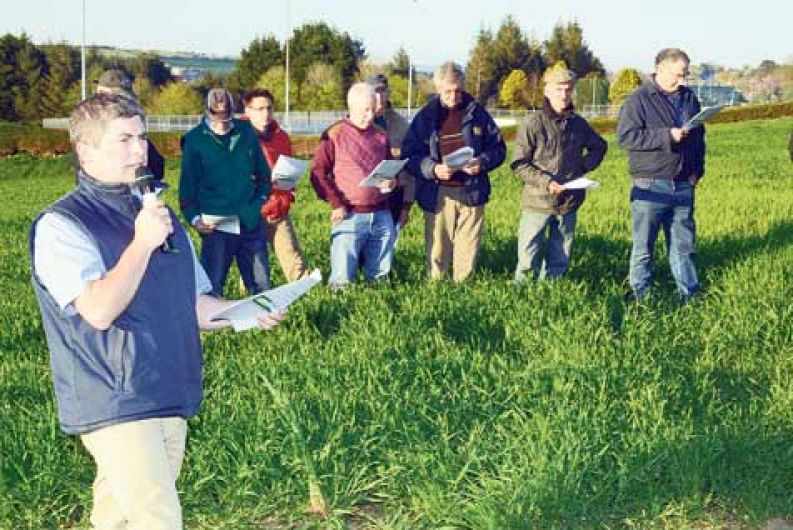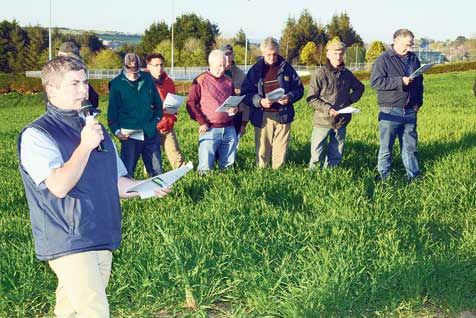An estimated 100 tillage farmers attended a Spring Crop Walk, which discussed the cereal crops grown by Calvert and Keith Smith at the Bandon Grammar School farm, on Wednesday evening, April 22nd.
BY JOHN SEXTON
AN estimated 100 tillage farmers attended a Spring Crop Walk, which discussed the cereal crops grown by Calvert and Keith Smith at the Bandon Grammar School farm, on Wednesday evening, April 22nd.
The event was arranged by Teagasc and, at the outset, Billy Kelleher (Cork West regional manager), introduced the speakers, Kieran Collins, tillage advisor, Cork West, and Tim O’Donovan, tillage specialist, Kildalton College, who has strong family connections in the Kilmeen and Timoleague areas. Both of them spoke at length on barley, both winter and spring crops, with references also to wheat, oats and beans – crops which are not grown to any great extent in the local area.
They laid special emphasis on disease control, and the importance of applying fungicide at the correct stage of growth. Trials carried out at Oakpark and Kildalton have shown that yields can improve by as much as half-a-ton per acre when it is applied at the correct stage of growth.
Both also emphasised the importance of early disease control to maintain tillers, and to always control disease, if present, early.
For spring barley, the cleaner varieties are Taberna, Irina and Quench, while Propino and Overture, are moderately clean.
Weed control here is an area that need constant attention and the key to successful weed control is to control them early – four-leaf stage to early tillering. It’s important to know your weeds and select the most suitable herbicides. and good growing conditions will heavily influence control.
The most common weeds in cereal crops are Charlock, Chickweed, Fat Hen, Deadnettle, Redshank and Black Bindweed and, in certain humid conditions, Aphids can also be a problem. It all goes to show the meticulous attention that needs to be given to cereal crops in order to reap the desired result and gain the maximum yield, especially when in competition with the intensive grain-growing regions of the world.








